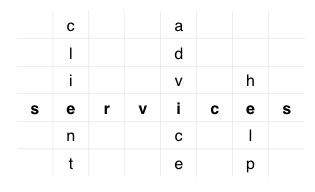Services are available to assist students with their learning needs for a successful learning, living, and work experience.

This is how we can help.
Services are available to assist students with their learning needs for a successful learning, living, and work experience.

Meadowlark Tutorials provides remedial (to fix or make better) services to help a person recognize and develop his/her own learning styles. Skills and techniques are taught and allowed to develop at a comfortable pace and with greater clarity.
"Through regular tutorials with Philip of Meadowlark Tutorials, my son has become a motivated, independent, confident learner. He has learned a myriad of strategies which he uses to compensate for his learning disabilities and is achieving a solid B+ average. I, myself am a teacher and frequently refer Phil's services for my students." R. Piche - teacher
With instruction, understanding, and practice, these newly introduced skills and techniques are learned and reinforced. Study skills in preparation for high school, college, and university are developed continuously.
For the parents, Philip is a remedial education specialist helping students of all ages improve their learning abilities. He provides advice, advocacy, and professional guidance through the public and private education system.
For the students, Mr. Phil is their learning specialist. He is the guy who makes them laugh, understand, and learn better. He is there to help them develop the learning skills, techniques, and habits to be a successful and happy student.
"Philip Powel Smith has been an incredible asset to my son. His learning skills have improved immensely. I highly recommend Meadowlark Tutorials. Philip has succeeded where everyone else has failed." D. Thornton, parent
Skills and Techniques.
Interdisciplinary (reading, writing, and speaking) and Simultaneous Multi-sensory (seeing, tracing, hearing, doing, writing) techniques are used to help learn, remember, and recall information from different sources. This information can be read, written, or expressed verbally in order to communicate or problem solve at a later time.
Interaction (praise, motivation, humour, enjoyment, and positive reinforcement) is vital to developing the skills and techniques of the learning process.
"Learning is easier now because of Philip." B. McConnell
What Skills are Taught?
All grades include study skills, practice and review, and a focus on time management and planning involving paper or electronic calendars and agendas.
Grades 1 - 9: Developing the skills for learning, understanding, and using knowledge to have a solid foundation for present and future learning is vital during these years of development.
Reading, writing, and language usage are the focal points from which learning, understanding, and interpretation are developed.
All subjects, study, and research skills are taught in the English language.
Learning styles and techniques are emphasized and practiced during the lessons with the development of positive learning habits.
Grades 10 - 12: During these years of development it is vital that positive learning habits developed in the early grades are maintained and enhanced.
As academic grade levels increase, the emphasis on language based learning rather than content is the focus.
Reading, essay and research writing, learning and study skills, note taking, and expressive writing skills are the focus of the skills and techniques developed.
The sciences and mathematics are subjects with the focus on content for note taking, review, and practice for healthy study habits, project completion, and test preparation.
College and University: At this level, it is time to harness and use the strengths acquired in earlier years to become focused for future growth, development, and living. Research and writing skills, note taking, and study skills are developed or improved to higher education standards.
School involvement: and communication and involvement with the school and teachers is encouraged. When possible, all content material used during tutorials is from the student's classroom. Classroom content is used so the skills learned during tutorials may be applied directly to what is being learned at school.
Home schooling: is for students who are unable to continue with at-school education. Home schooling provides these students with the opportunity to continue their schooling with Ministry of Education curriculum based material and personalized material emphasizing the provincial curriculum.
Advocacy and conflict resolution: provides help to students and parents when behaviour, discipline, learning, and remedial problems develop at school. When issues are not resolved between those concerned, I will mediate with school officials and parents to help develop solutions that are agreeable to all. An advocate acts as a mediator, not a judge.
Advocacy is conflict resolution. It encourages school boards and individual schools to provide quality control in the delivery of remedial education. Advocacy enforces the school's Identification, Placement, and Review Committee (IPRC) recommendations.
The goal is to ensure that all students have an enjoyable and supportive learning experience. A positive and secure environment helps develop, encourage, and promote learning and growth for individuals from all walks of life.
Payment:
Payment for services is to be received before a service is provided.
Built with Mobirise - Click here